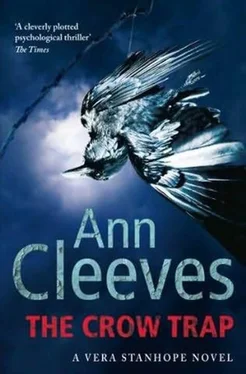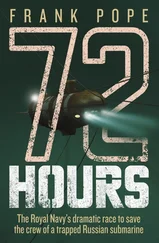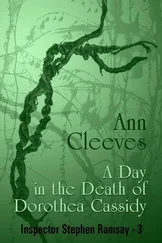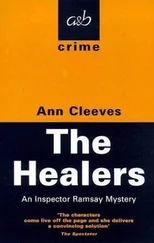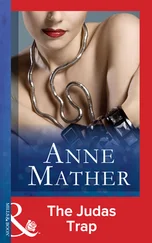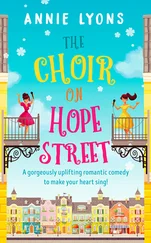He continued, mumbling so she had to strain to hear him.
“I was brought up in Kimmerston. Failed the eleven-plus and went to the secondary modern. I was never much good at school. Couldn’t see the point really. Not that I mucked about. I just didn’t bother. When I was fifteen I left and went to work in the quarry at Slateburn. It wasn’t much of an operation then, nothing to what it is now. The old man prepared dressed stone for mantelpieces, ornamental walls, headstones, you know the sort of thing. He’d lost interest in it, the business side at least. He liked fiddling with the stone and his chisels but he couldn’t be bothered chasing up unpaid bills. I got a chance to buy in. Making money always appealed to me, even when I was at school.” He smiled at her apologetically. Perhaps he thought she was a woolly-minded environmentalist to whom money didn’t matter.
“That’s it really. We were able to expand. It was as much a matter of luck as anything else. Being in the right place at the right time. You know.” He stopped abruptly. “Look, I shouldn’t be going on so much about myself.” As if it was something he’d read in a magazine.
“Are you married?” she asked, thinking it was probably the advice page in his wife’s magazine that he’d been reading. He wasn’t wearing a ring but she thought he was married. He had the look.
He paused and she was expecting him to lie but he said: “Yes, to Barbara. She doesn’t get out much.”
“What a strange thing to say!” So strange that she pressed him to elaborate but he refused.
“I’m married,” she said at last, stretching extravagantly. “And I get out all the time.”
For some reason the remark seemed to embarrass him. He didn’t answer and stretched over to fill her glass. She’d drunk most of the bottle already. He’d offered to drive.
“Are you local?” he asked. He was very polite as if they’d just met.
“I mean, were you born near here?”
“Quite near.”
She hated going into her background. She’d always considered that her parents were rather horrible little people. Her father had been headmaster of a boys’ prep school. Until she was old enough to go to school herself she was brought up in that atmosphere of petty tyranny and ritual, of competitive games and fake tradition. Her mother lorded it over the other wives and her father lorded it over them all.
“Where did you go to school then? The grammar, I suppose.” She was amused that this business of education seemed to matter so much to him.
She rather despised people with formal qualifications but it seemed to be his way of defining them.
“Lord, no! I got sent away to a ghastly heap on the North York moors.
I didn’t learn a thing.”
She always described her years at the ghastly heap in this way but she knew it wasn’t quite true. There was a woman who taught Biology, Miss. Masterman, who had seemed as lonely and isolated as any of the girls.
She was young, straight out of college, rather prickly. A Scot who would have been more at home in an inner city secondary modern than this gothic pile. Even then Anne had wondered what she was doing there. It was hard to imagine her drinking afternoon tea in the panelled Mistresses’ common room with the stuffy spinsters who made up most of the staff. And she certainly seemed to prefer the company of a small set of older girls to that of her colleagues. She arranged tramps on the moors, and away from the school she seemed to relax. She carried with her a sketchbook full of pencil drawings. The lines were fine, the pictures full of detail. She sprayed them with a fixative which smelled of pear drops to prevent smudging.
Occasionally, Miss. Masterman led them on fungus forays. Away from the school she encouraged the girls to call her Maggie but Anne always thought of her as Miss. Masterman. They’d carry flat wicker baskets and listen with delicious horror as she recounted, in her dry Edinburgh voice, tales of people who’d taken poisoned fungus by mistake. Putting off the return to school as long as possible they would build a camp fire at dusk and fry up the edible fungi, the field mushrooms and the ink caps.
Sitting in the restaurant, watching the candle flicker, Anne could remember the smell of woodsmoke, the feel of the battered tin plates, the taste of buttery juice wiped up with crusty bread. She had learnt something from the Biology teacher. She’d learnt that she never wanted to be like Maggie Masterman, depending on adolescent girls and mushrooms for fun. And that she had a passion for plants.
“Do you work?” Godfrey asked, breaking into the memory. “Or perhaps you have children?”
As if the two were mutually exclusive.
“No, no children. And no permanent work. Bits and pieces, you know.”
When things were tight. When Jeremy’s mysterious deals failed to come off. She learnt, very soon after marriage, that Jeremy was gay in a camp, rather jolly way. Of course he knew when he married her but perhaps thought, like the old Archbishop of Canterbury, that the right girl would cure him. She was sure that no malice or spite was intended in the transaction but there were other deceits the impression, for instance, of money. He did have the Priory, which had sounded grand at the time but which had turned out to be no more than a glorified farmhouse built from the stone of a Tudor chapel. And he hadn’t paid for that, it had been left to him by his grandfather.
By nature Jeremy was wonderfully optimistic. He imported antiques, art, books. Usually he managed to make enough just to tide them over but recently she suspected he might even fail to do that. They never discussed finance. If she asked about money he wagged a podgy finger at her. “Now, old girl. Leave all that to me.”
Recently there had been fewer plans for the house, less discussion about interior decoration usually he loved talking fabric and furnishing. She wondered, not for the first time, if he was being blackmailed by one of his little boys.
But Anne resented working for money. It came hard to put in so much effort and receive so little reward. She found it demeaning. For example, she could spend a whole day landscaping someone’s garden and still not be paid enough to buy this dinner. It hurt her pride to be valued so little. She found she preferred to work as a volunteer. That was how she first met Peter Kemp.
She responded to an advertisement in the Wildlife Trust magazine.
People with botanical skills were required to help with an English Nature survey. She was sent on a course and shone. Since then she’d worked regularly for the trust as a volunteer, and loved every minute of it. It was like Miss. Masterman’s botanizing expectations all over again.
Sitting in the restaurant, Anne realized that Godfrey was looking at her, pleadingly.
Oh God, she thought. He wants to talk about his offspring.
“And you?” she asked with resignation. “Do you have children?”
He replied immediately, becoming much more animated than when talking about his business. “We’ve a little girl. Felicity. She’s nearly ten. Very bright for her age. At least that’s what we think. She’s still at the village school at the moment; Barbara says the teachers there are good. Later we’ll have to see… “
Anne yawned discreetly into the back of her hand. She almost expected him to bring out the photo which he certainly kept in his wallet. Yet this was the moment she decided she could afford to have an affair with him. He would never get too serious. There would be no talk of divorce, of their moving in together. He would do nothing to upset his daughter.
Now the restaurant was almost empty. It was in Kimmerston, right on the bank of the river. They were alone in an extension built almost entirely of glass. A cold green light was reflected from the water.
Читать дальше
